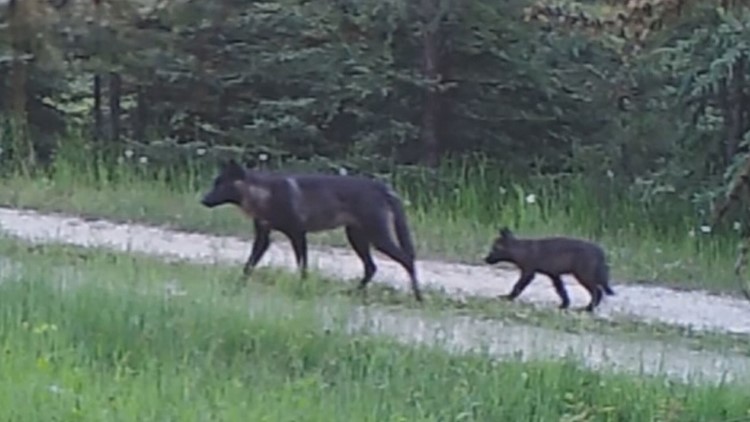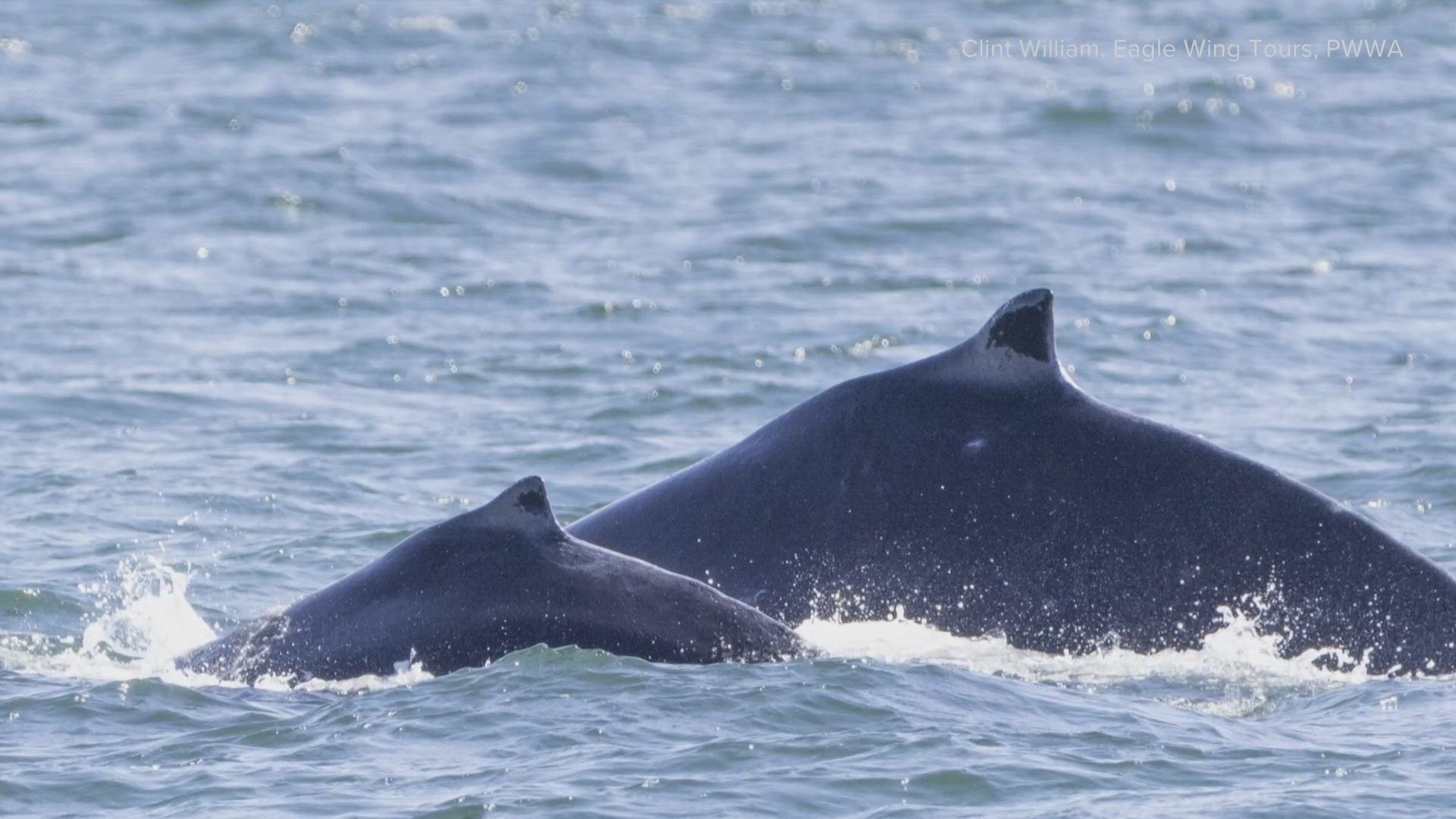The state killed a juvenile wolf in Ferry County after its pack was blamed for several attacks on ranging cattle.
In a statement posted Tuesday, the Washington Department of Fish and Wildlife said, "On September 16, a Washington Department of Fish and Wildlife marksman shot and killed a juvenile member of a wolf pack currently occupying the Old Profanity Territory (OPT) that has repeatedly preyed on cattle on federal grazing lands in the Kettle River Range of Ferry County. The young wolf, weighing 50 pounds, was one of four pack members spotted that day by a WDFW helicopter crew. Identifying adults and young wolves from the air is difficult this time of year due to the size of the animals."
WDFW Director Kelly Susewind authorized incremental removal of wolves from the OPT pack on Sept. 12. Staff reports confirmed that one or more pack members killed one calf and injured five others on a U.S. Forest Service grazing allotment.
RELATED: 10-year preservation plan advances
It's the third time in three years that wolves have been lethally removed from the same cattle ranging area. The Profanity Peak pack was killed off in 2016. Then the Sherman pack was targeted. Now it's the OPT pack.
The day after the juvenile wolf was removed, WDFW confirmed that an adult cow was killed by wolves in the same general area. WDFW staff believe that it was likely killed prior to the removal of the wolf.
Internal documents show that, as was the case with the Profanity Peak pack, salt licks were left out in areas of high wolf density.
"We discussed whether salt blocks should be removed from locations with high wolf-livestock overlap, as this has been a concern in past wolf depredation scenarios in this area. We concluded that this would likely be of little help in the present circumstances. Even when salt blocks are moved, cattle continue to visit and linger at these sites due to the amount of salt in the ground from years salting. The herd memory of salt blocks also tends to home them to these sites, and if salt blocks are missing, the experience is that cattle actually linger while searching for the salt blocks," wrote Region 1 Wildlife Conflict Supervisor Joey McCanna.
The letter written by McCanna also states that "good faith efforts to employ nonlethal control measures have failed to keep livestock safe." WDFW says the rancher used the following non-lethal methods to deter conflict: range riders, calving outside of occupied wolf range, delayed turn out of cattle until July 10 – a month later than usual – when the calves are larger and less vulnerable, removing or securing livestock carcasses to avoid attracting wolves to the rest of the herd, and removing sick and injured livestock from the grazing area.
According to McCanna, the Eastern Washington Recovery Area where the OPT pack resides has 106 wolves in 19 known packs, including 13 breeding pairs. Incremental removal, or the loss of pups, McCanna writes, would have no significant impact on wolf recovery in Washington state.
The consistent, site-specific conflict between wolves and cattle, however, has changed the opinion of many conservation groups that typically support lethal removal, questioning whether new protocol should be examined to reduce conflict if the state is taking lethal action in the same spot every year.
The Center for Biological Diversity has taken, so far, unsuccessful legal steps to stop it, currently suing WDFW over wolf management, while also asking for restraining orders to stop specific kills.
"We're deeply saddened by the unnecessary killing of a wolf pup from the OPT pack," said Amaroq Weiss, West Coast wolf advocate at the Center for Biological Diversity. "The state has now killed 16 wolves from three separate packs, and is threatening to kill another, all on behalf of one rancher who has refused to change his practices to avoid further losses. This is not how Washington residents want the state to treat wolves and other wildlife."
Conservation Northwest has vocally opposed the action, while criticizing legal action to stop it.
"While we disagree with the department's decision on going lethal in this particular instance, we support the Wolf-Livestock Interaction Protocol and the department's authority to make decisions in implementing the protocol," said Paula Swedeen, Conservation Northwest Policy director. "We think that getting courts involved does not get to coexistence during this difficult time and prefer continued dialogue with all affected parties to find an acceptable path forward."
WDFW reports that it is currently working to decide what next steps to take to deter wolf depredation by the OPT pack under the current lethal removal action.



